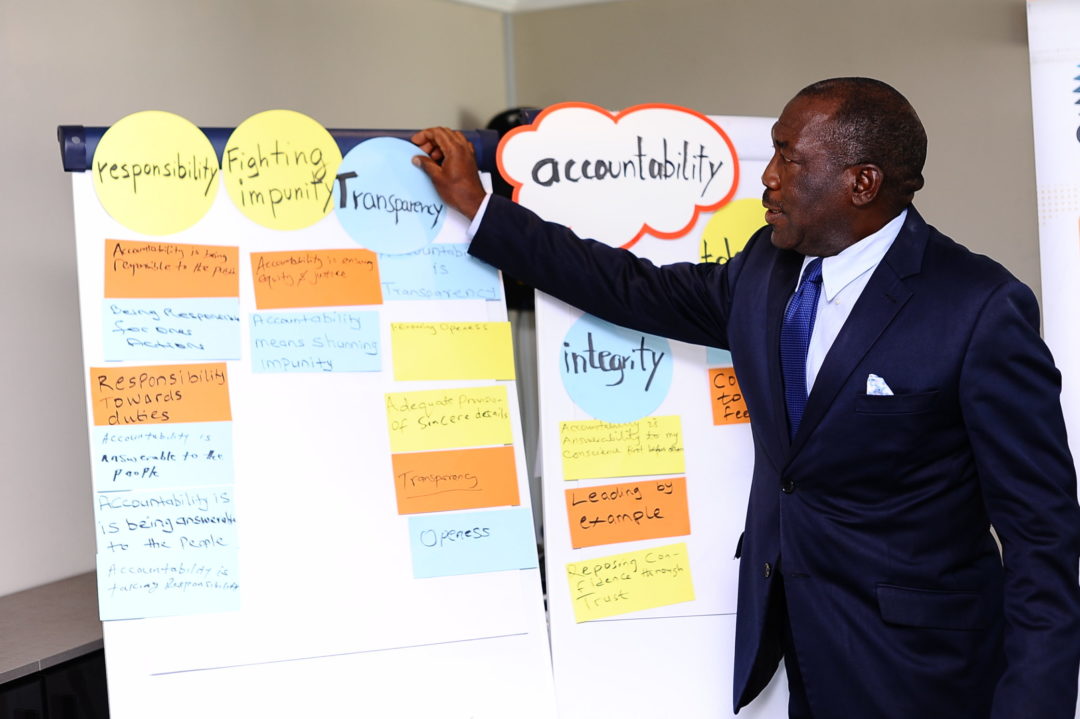Wayamo brings journalists together for one-day workshop in Abuja
30 October 2020, Abuja, Nigeria
In full compliance with COVID-19 restrictions, Wayamo held a media engagement as part of its scheduled Nigeria programme. Attending the event in person were journalists from the Voice of Nigeria, News Agency of Nigeria, Nigerian Television Authority, Radio Nigeria, Hallow Mace Communications, TVS News and Premium Times.
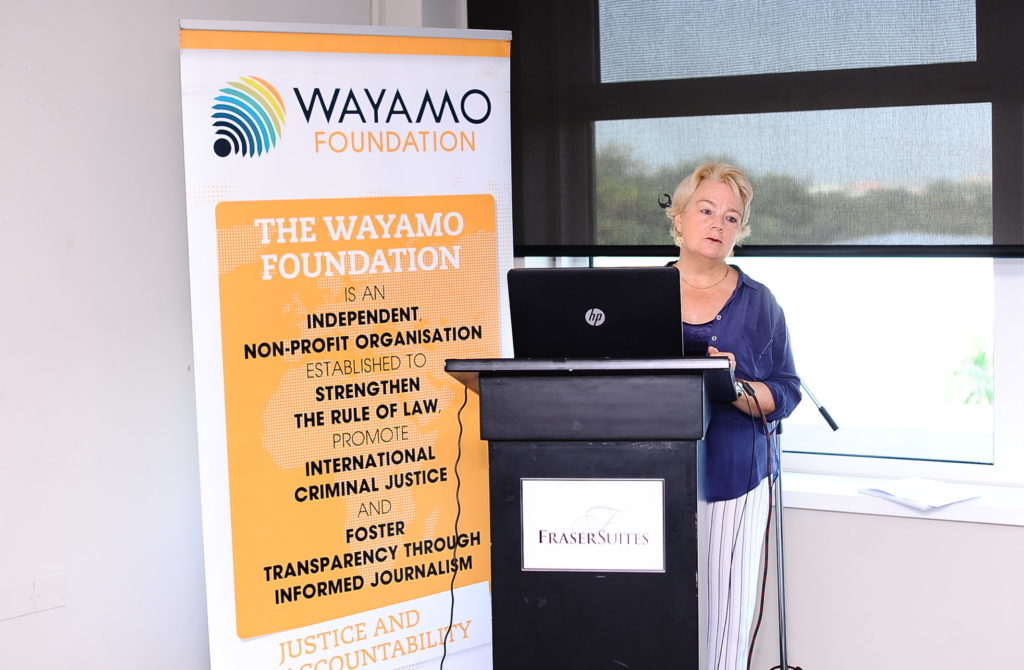
Opening remarks by Wayamo Director Bettina Ambach.
In her opening remarks, Wayamo Foundation Director, Bettina Ambach, said that accurate and informed reporting could serve to lay the foundations for debate and constructive dialogue. Wayamo was seeking to strengthen reporting skills and build knowledge on critical justice-related issues affecting the region, with the ultimate goal of raising awareness about the continued importance, not only of accountability for core international crimes on all sides, but also of responsible, knowledgeable and accurate journalism. Over the course of the coming year, Wayamo will facilitate a series of such meetings to strengthen reporting skills and build knowledge on critical justice-related issues affecting the region, ranging from the role of the International Criminal Court in Nigeria to security challenges and the domestic prosecution of alleged Boko Haram members.
The meeting in Abuja in October focused on international criminal justice reporting in general and the ICC’s ten-year-long preliminary examination of alleged crimes against humanity and war crimes committed by Boko Haram and the Nigerian security forces. In this connection, it would be beneficial to create a network of expert journalists, specialised in international criminal justice and broader accountability issues. This could take the form of a dedicated WhatsApp group, whose members would help one another with information, contacts, support, etc.
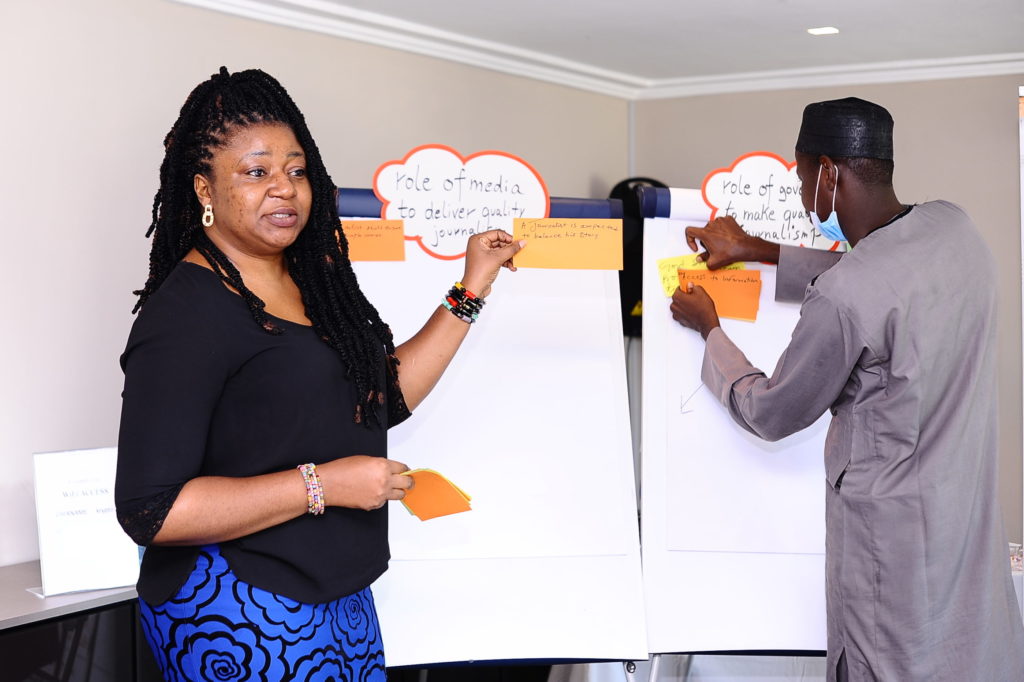
Journalists Nanneh Kemte-Giadom and Abdulaziz Abdulaziz leading a group exercise.
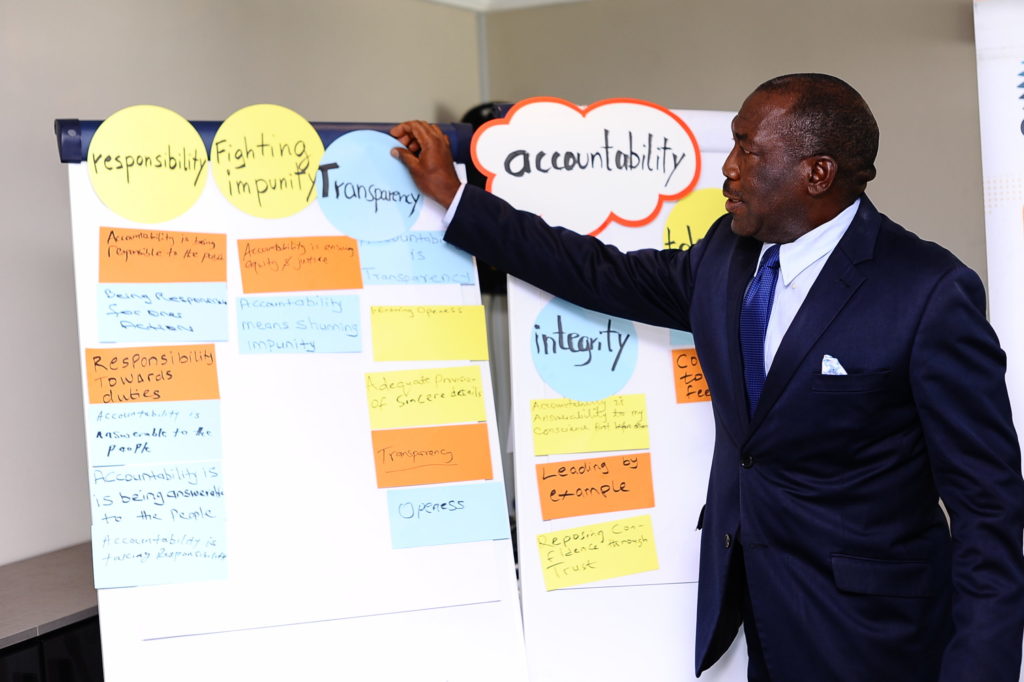
Veteran journalist Femi Okeowo, Nigerian Television Authority, presenting results of group exercise.
The meeting kicked off with two interactive group exercises, in which the participants had to reflect on an issue, discuss it as a team, and come up with practical working answers to two different questions, namely, “What is accountability for you?” and “What have we journalists to do to deliver quality journalism and what has the government to do to make quality journalism possible?”
This was followed by two virtual presentations, both on the topic of the ICC and Nigeria, and both given by top experts in their respective fields.
Janet Anderson, a journalist with 20 years of experience covering international criminal justice issues, talked about the situation in Nigeria and the challenges, possible pitfalls, and “do’s and don’ts” for a journalist reporting on these issues. Her particular expertise was, as she phrased it, “making sure that women’s voices get heard in this field”.
The challenges facing journalists included the physical distance to the Court, getting access to the right people, asking the right questions, consulting source documents, and the very real danger of getting “drowned in jargon”. Common mistakes to be avoided were the confusion between the different international courts and the existence of different legal systems. Participants would be well advised to remain balanced and bias-free, reflect the defence’s view, give context to stories, avoid ‘groupthink’, keep informed, know the rules, and “try and make things as simple as you can, but don’t make them simplistic”.
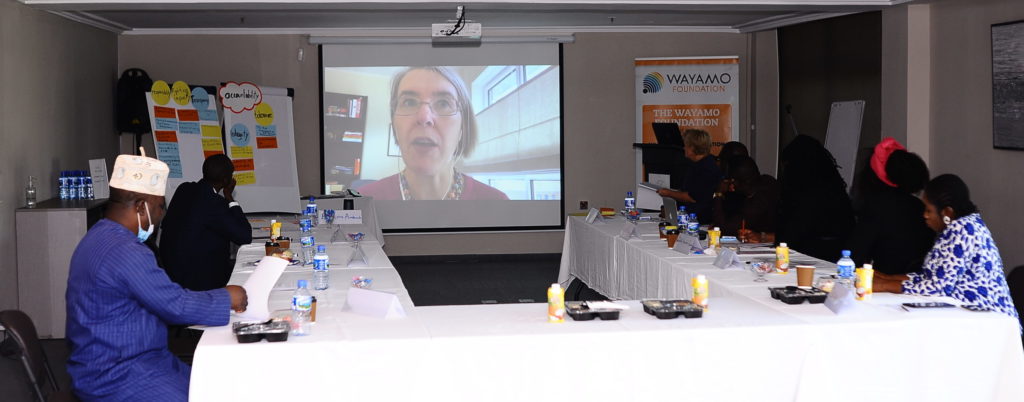
Virtual lecture by journalist and media trainer Janet Anderson.

Virtual lecture by Claus Molitor, Office of the Prosecutor, ICC.
The same situation was now analysed from a purely legal stance by someone long engaged at the very highest level in assessing the position: ICC Situation Analyst, Claus Molitor spoke on the Court’s preliminary examination, giving a step-by-step explanation of the tests applied to determine whether a potential case existed, and if so, whether it would be admissible. When a potential case is identified, the next step is to decide whether there are any relevant proceedings with respect to it. One of the main problems is that the Nigerian authorities have conducted many -admittedly “very important”- proceedings but these are not regarded as relevant, e.g., because the charges of membership of a terrorist organisation or failing to provide information on a terrorist act do not relate to conduct deemed to fall under the jurisdiction of the Rome Statute. In view of this, the Office of the Prosecutor considers that there are no relevant proceedings with respect to the crimes that it identified.
Full advantage was taken of the final session of the day to set up a dedicated WhatsApp group, with a view to enhancing collaboration and promoting quality reporting of justice-related issues.

